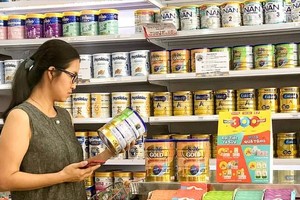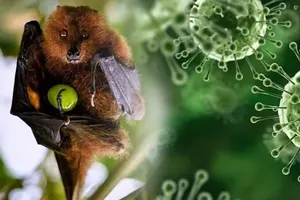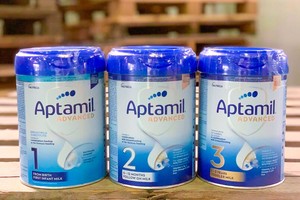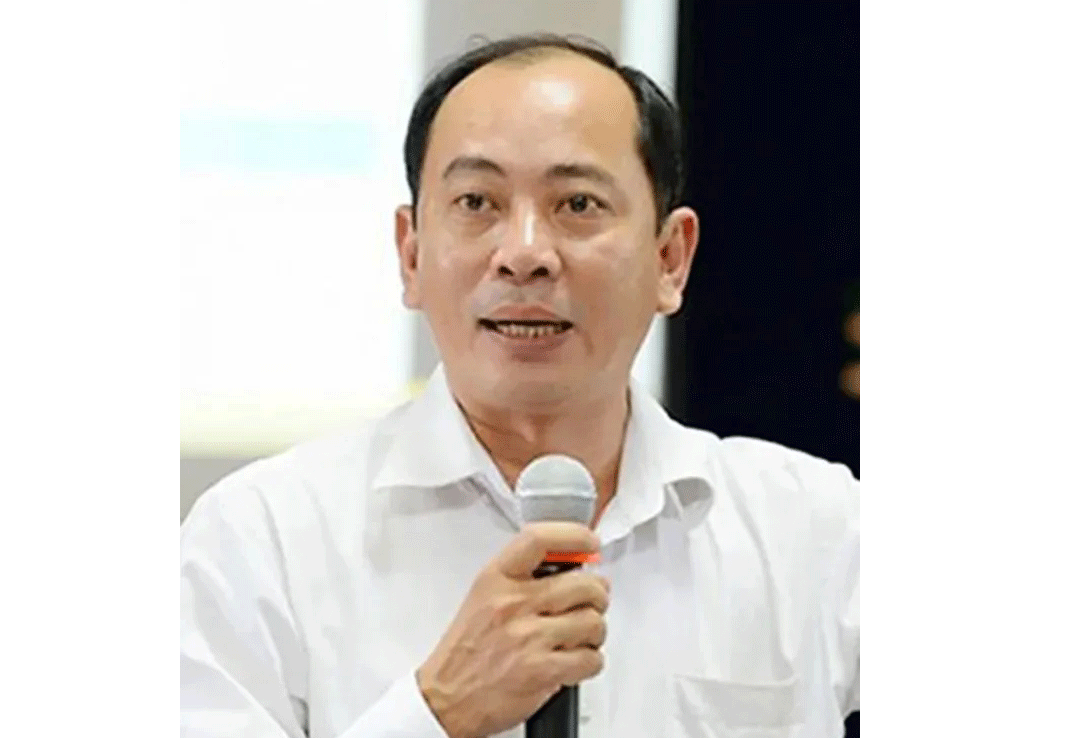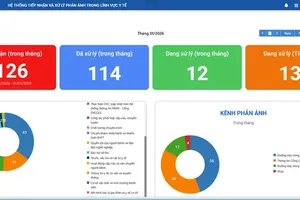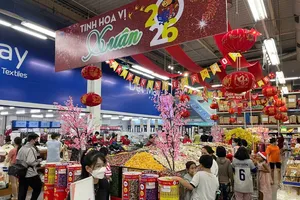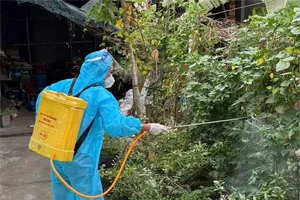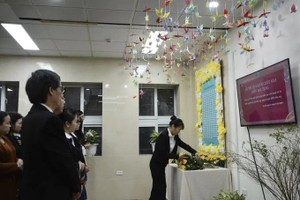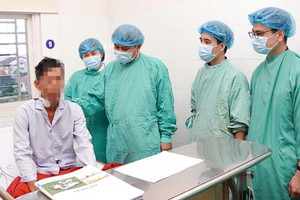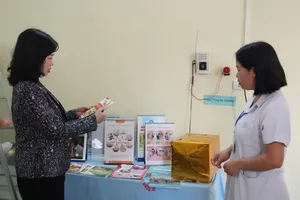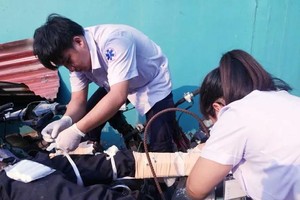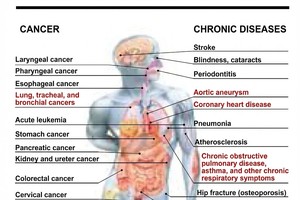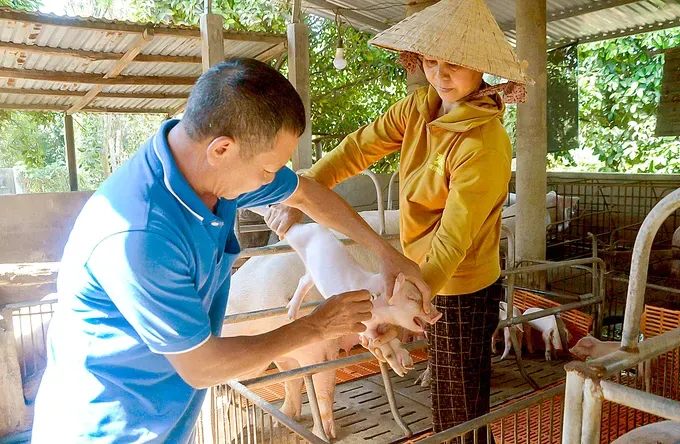
Trickle of vaccines, no mandate
In HCMC, with the outbreak intensifying, some farmers have taken matters into their own hands, purchasing African swine fever (ASF) vaccines privately. But with market prices hovering above VND60,000 per dose (US$2.3), the cost to inoculate an entire herd is a significant financial burden.
“The high cost, combined with lingering doubts about the vaccine’s quality, makes it difficult for us to invest in a comprehensive vaccination program”, said Director Pham Truong Giang of Trang Linh Co. Ltd., a company in Xuyen Moc Commune of HCMC that raises around 50,000 pigs. This sentiment is shared by many other large-scale farming operations in the city.
According to the HCMC Department of Agriculture and Environment, while vaccination rates for other diseases like classical swine fever remain high, ASF vaccination hasn’t been prioritized. For now, the main line of defense for most remains strict biosecurity protocols and closed-loop farming systems.
The core of the problem is policy. “The Ministry of Agriculture and Environment has not yet made ASF vaccination mandatory”, explained Head Nguyen Xuan Trung of the Ba Ria – Vung Tau Division of Livestock and Crop Production, “so it’s very difficult to persuade farmers to spend the money.”
This is a nationwide issue. In Dong Thap Province, officials can only “recommend” vaccination because it isn’t part of the national immunization program, meaning no public funds can be allocated. The situation is stark in places like Ca Mau Province, which has a herd of several hundred thousand pigs but has administered only 3,020 doses this year.
“So far, it’s only encouraged on a voluntary basis”, confirmed Vice Chairman Tran Nam Hung of the Da Nang City People’s Committee. He acknowledged that despite best efforts to contain outbreaks, the disease recurs frequently and spreads with terrifying speed, causing immense damage.
In reality, the supply of vaccines available in many localities is just a trickle. In Quang Ngai Province, for example, an outbreak has forced the culling of over 42,600 pigs across 52 communes, yet only 5,000 vaccine doses have been made available at the commune level.
In Gia Lai Province, Head Huynh Ngoc Diep of the Division of Livestock and Animal Health, commented that there are currently 3 commercialized ASF vaccines, namely avac, navetco, and dabaco. This locality is home to the country’s largest pig population at nearly 1.8 million, yet only 15,000 doses have been used. He pointed to high costs and improper use – farmers vaccinating sows instead of the recommended 4-8 week old piglets – as major hurdles.
Meanwhile, a trial of 1,500 doses in Quang Tri Province has yet to yield the desired results, as informed by Head Tran Cong Tam of the provincial Division of Livestock and Animal Health.
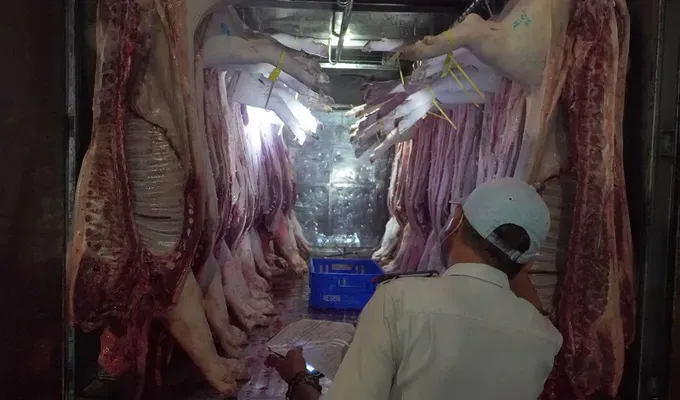
Effective, but with side effects
The debate over the vaccine is fierce. Vice Chairman Nguyen Kim Doan of the Dong Nai Province Livestock Association offers a compelling personal anecdote. “My family’s farm has been vaccinating for four years now, and because of that, our herd has been safe from the disease”, he stated. “The reality is simple. The farms that vaccinate keep their herds; those that don’t are devastated by ASF.”
However, he’s also quick to point out the vaccine isn’t perfect. “It can have side effects”, he cautioned, “so farmers need the technical knowledge to use it correctly. It’s especially important to start with disease-free breeding stock from a traceable source to avoid complications.”
This view is echoed by Deputy Director Nguyen Duc Dien of the Lao Cai Province Department of Agriculture and Environment, who shared that the province has been piloting vaccinations since early 2024. He stresses that to be truly effective, vaccination must be deployed systematically and at the right time, like a coordinated campaign.
The Ministry of Agriculture and Environment’s stance is clear. While many infectious diseases in livestock such as avian influenza, foot-and-mouth disease, and lumpy skin disease have been basically controlled, ASF still lacks a comprehensive response policy.
The Department of Livestock and Animal Health affirmed that every confirmed ASF outbreak has occurred in unvaccinated herds. “This is clear proof of the vaccine’s effectiveness”, he said. Since May 2022, nearly 7 million doses have been produced, with about 4 million used domestically. But with a national herd of 31.8 million pigs, this coverage is, as the saying goes, a drop in the ocean.
So why the hesitancy? General Director Nguyen Van Diep of the vaccine producer AVAC Vietnam says farmers’ caution is understandable. Large corporations often prioritize their expensive biosecurity systems over the added cost of vaccines. Furthermore, a lack of information to distinguish between authentic and counterfeit products, coupled with reports of pig deaths after injection, has fueled widespread anxiety. (Vaccine producers maintain these deaths occurred in animals that were already infected prior to vaccination.)
The bottom line for farmers is proof. “If the vaccine is truly effective and it’s clearly demonstrated, farmers will embrace it immediately”, asserted a representative from Hoa My Livestock Cooperative in Hanoi.
From a regulatory standpoint, the core issues are farmer awareness, concerns about vaccine efficacy, and cost. “The lack of specific, transparent data on the vaccine’s protection rate is a major reason for the hesitation”, said Deputy Director Phan Quang Minh of the Department of Livestock and Animal Health.
The current price of VND60,000 per dose is a significant barrier for smallholders. While Vietnam has licensed three ASF vaccines, with some even being exported to neighboring countries in Southeast Asia, a comprehensive national policy is still missing.
Many of these vaccines have proven protection rates as high as 97-99 percent. It’s clear that to turn the tide, the government needs to establish a policy to support vaccine prices, especially for small-scale farmers, to make vaccination the universal and accessible solution it needs to be.



